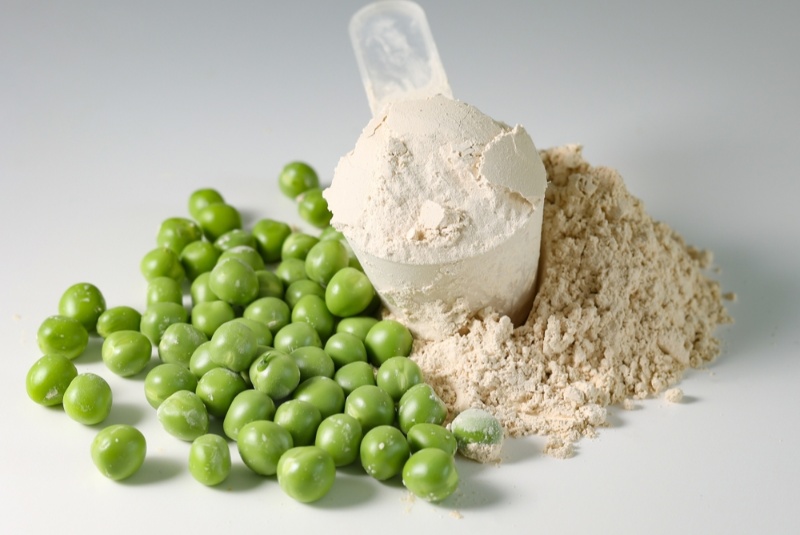Plant-based protein powders have become increasingly popular among fitness enthusiasts and health-conscious individuals seeking to meet their protein needs while adhering to a plant-based diet. With a wide array of options available on the market, choosing the best plant-based protein powder can be overwhelming. This comprehensive guide aims to simplify the selection process by providing valuable insights and considerations to help you find the perfect protein powder to support your fitness goals and dietary preferences.
1. Understanding Your Protein Needs: Setting Fitness Goals
Determining Your Protein Requirements
Before selecting a plant-based protein powder, it's essential to understand your protein needs based on your fitness goals, activity level, and dietary preferences. Whether you're looking to build muscle, support recovery, or simply increase your protein intake, determining your daily protein requirements will guide your selection process and ensure you choose a powder that meets your nutritional needs.
Considering Protein Content and Quality
When evaluating plant-based protein powders, consider both the protein content and quality. Look for powders with a high protein content per serving and ensure they contain complete protein sources that provide all essential amino acids. Additionally, opt for protein powders made from high-quality plant sources, such as pea, rice, hemp, or soy, to maximize the nutritional value of your supplement.
2. Assessing Ingredient Quality: Clean and Natural Formulations
Reading Ingredient Labels
Take the time to read the ingredient labels of plant-based protein powders carefully. Look for products with minimal ingredients and avoid those containing artificial additives, flavors, colors, or sweeteners. Opt for protein powders made from natural and organic ingredients whenever possible to ensure a clean and wholesome supplement that supports your overall health and well-being.
Avoiding Allergens and Sensitivities
If you have food allergies or sensitivities, be mindful of potential allergens present in plant-based protein powders. Common allergens such as soy, gluten, dairy, and nuts may be found in certain formulations. Choose protein powders that are free from allergens and suitable for your dietary restrictions to prevent adverse reactions and ensure compatibility with your lifestyle.
3. Evaluating Taste and Texture: Enjoyable and Versatile Options
Sampling Different Flavors and Brands
Taste and texture play a significant role in the overall enjoyment of plant-based protein powders. Experiment with different flavors and brands to find one that suits your palate and preferences. Consider factors such as sweetness level, flavor intensity, and texture to ensure a pleasant and satisfying drinking experience.
Mixability and Versatility
Assess the mixability and versatility of plant-based protein powders. Choose powders that dissolve easily and blend smoothly into your favorite beverages and recipes, such as smoothies, shakes, or oatmeal. Additionally, opt for versatile formulations that can be used in various culinary applications to enhance the nutritional content of your meals and snacks.

4. Reviewing Nutritional Profile: Supporting Overall Health
Balanced Macronutrient Profile
Review the nutritional profile of plant-based protein powders to ensure they align with your dietary goals and preferences. Look for powders with a balanced macronutrient profile, including adequate protein, carbohydrates, and fats, to support your energy levels, muscle recovery, and overall health. Additionally, consider factors such as fiber content, vitamins, and minerals to enhance the nutritional value of your supplement.
Low Sugar and Caloric Content
Be mindful of the sugar and caloric content of plant-based protein powders. Choose products with low sugar levels and minimal added sweeteners to prevent unnecessary calorie intake and support weight management goals. Additionally, opt for protein powders with a reasonable caloric content that fits within your daily calorie allowance and dietary regimen.
5. Considering Price and Value: Balancing Budget and Quality
Comparing Cost per Serving
When selecting a plant-based protein powder, consider the price and value of each product. Compare the cost per serving of different brands and formulations to identify options that offer the best value for your budget. Keep in mind that higher-priced powders may not always equate to superior quality, so prioritize products that strike a balance between affordability and nutritional value.
Investing in Quality Supplements
While price is an important factor to consider, prioritize quality when investing in plant-based protein powders. Choose reputable brands known for their commitment to sourcing high-quality ingredients and manufacturing standards. Investing in a premium-quality supplement may offer better results and long-term benefits for your fitness goals and overall health.
6. Seeking Transparency: Researching Brand Reputation and Manufacturing Practices
Importance of Brand Reputation
Before making a final decision on a plant-based protein powder, it's crucial to research the brand's reputation within the industry. Look for companies with a track record of transparency, integrity, and commitment to quality. Reading customer reviews, checking for certifications, and exploring the brand's website can provide valuable insights into its reputation and credibility. Choose brands that prioritize transparency in their sourcing, manufacturing, and labeling practices to ensure you're investing in a trustworthy product that aligns with your values and standards.
Manufacturing Practices and Quality Control
In addition to brand reputation, it's essential to delve into the brand's manufacturing practices and quality control measures. Investigate where and how the plant-based protein powder is produced, ensuring adherence to strict quality standards and regulations. Look for brands that employ Good Manufacturing Practices (GMP) and undergo third-party testing to verify the purity, potency, and safety of their products. By understanding the brand's manufacturing processes, you can have confidence in the quality and integrity of the protein powder you choose.
Conclusion: Making Informed Choices for Optimal Nutrition
In conclusion, finding the best plant-based protein powder for your fitness goals requires careful consideration of various factors, including protein content, ingredient quality, taste, texture, nutritional profile, price, and value. By understanding your protein needs, assessing ingredient labels, evaluating taste and texture, reviewing the nutritional profile, and considering price and value, you can make informed choices that support your fitness journey and promote optimal nutrition. With the right plant-based protein powder, you can fuel your workouts, support muscle recovery, and maintain overall health and well-being on a plant-based diet.




